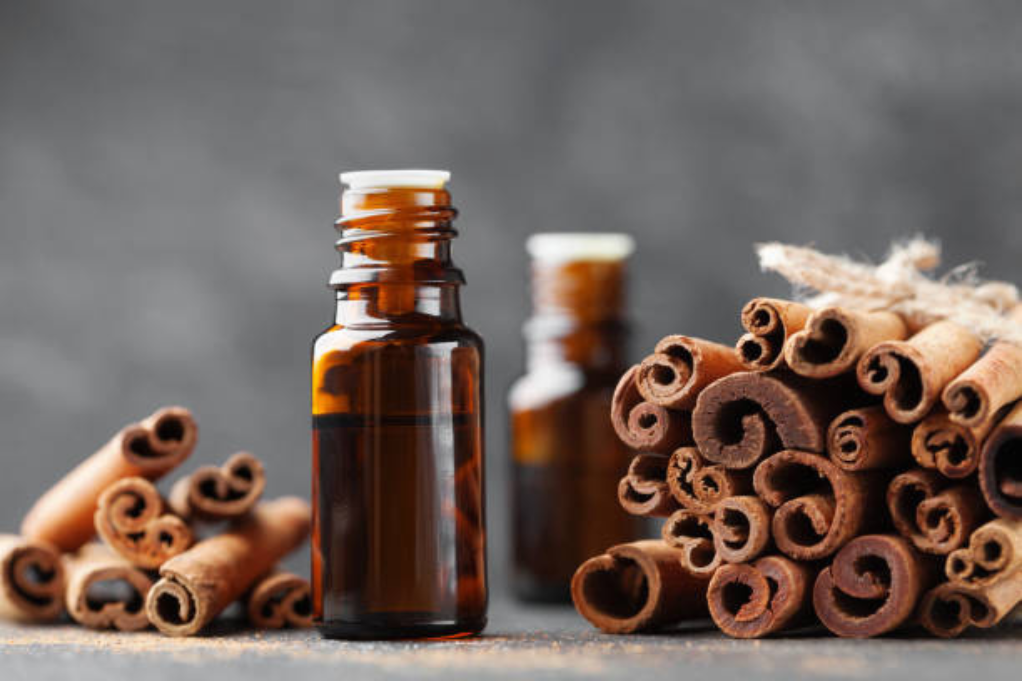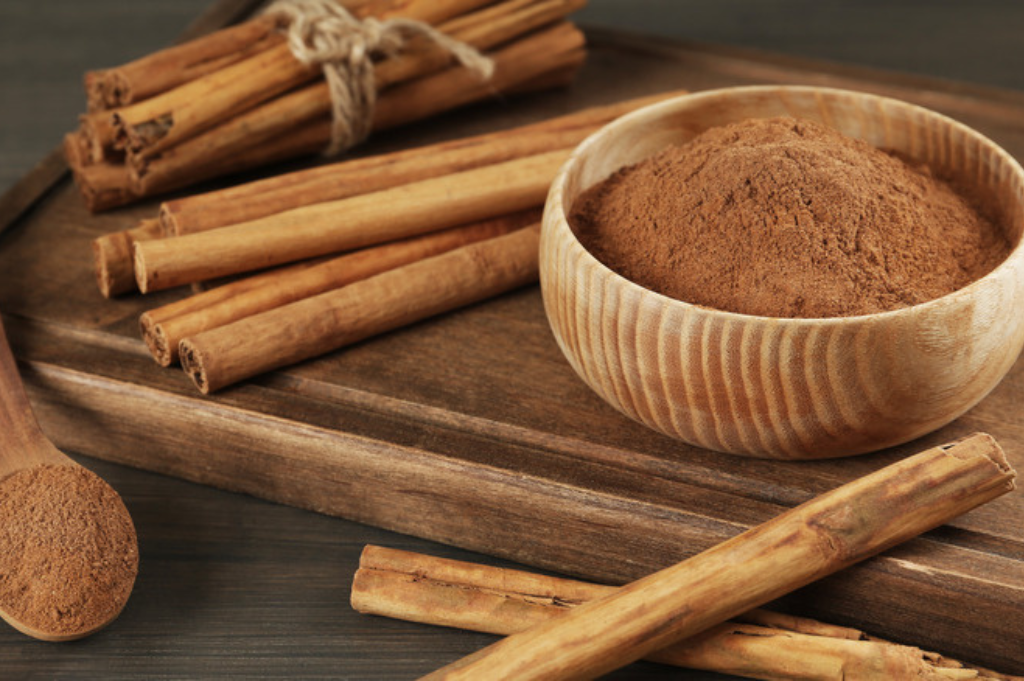Vietnamese cinnamon, also known as Cassia cinnamon. It boasts a warm, aromatic flavor that enhances many dishes, from curries and stews to baked goods and beverages. But beyond its culinary uses, Vietnamese cassia cinnamon offers a surprising range of potential health benefits. Let’s go into 5 benefits cassia cinnamon can bring to your health!
1. Which compounds does Cassia Cinnamon contain?
Cinnamaldehyde and eugenol are two major bioactive compounds found in cassia bark.
Cinnamaldehyde is an aromatic aldehyde, the main component of cinnamon essential oil, responsible for its characteristic scent and flavor. It is a light yellow, oily liquid.
Eugenol is a phenolic compound also found in cloves and nutmeg. It contributes to the spicy, warm flavor of cassia cinnamon. Eugenol is a colorless to pale yellow liquid.

Both cinnamaldehyde and eugenol have a variety of health benefits and are used in various applications. Cassia cinnamon (Saigon cinnamon) contains antioxidants, which are compounds that help protect your cells from damage. Some of the key contributors to this antioxidant power include cinnamaldehyde (which gives cinnamon its characteristic flavor) and eugenol, a compound known for its anti-inflammatory properties.
2. 5 potential health benefits of Cassia
Let’s go deeper into the detailed health effects of the two above compounds:
Blood sugar management: Cassia contains a high content of hydroxychalcone. It may improve insulin sensitivity, helping your body utilize blood sugar more effectively. This could be particularly beneficial for individuals with type 2 diabetes.
Anti-inflammatory: Additionally, cassia cinnamon also demonstrates anti-inflammatory properties due to the eugenol compound. Chronic inflammation is linked to various health problems, and the anti-inflammatory compounds in this spice may help reduce inflammation throughout the body.

Beyond these two key areas, Vietnamese cassia cinnamon shows promise in supporting brain function, antibacterial & antimicrobial, and even oral health. In detail the effects of cassia:
Neurological support: Cassia contains cinnamaldehyde, a compound that may have neuroprotective properties. It has some potential benefits for the brain. Firstly, it may help protect brain cells from damage due to antioxidant and anti-inflammatory effects. Next, it may improve memory and learning. Some studies suggest that cassia cinnamon may improve memory and learning in animals. However, we need more research to determine if these effects apply to humans.
Antibacterial & Antimicrobial properties: Its antimicrobial power comes from its essential oil, which contains compounds like cinnamaldehyde. This compound disrupts the cell membranes of bacteria and fungi, hindering their growth and survival. It can be effective against various bacteria, including Staphylococcus aureus and Escherichia coli (E. coli). It can also inhibit the growth of some fungi and yeasts.
Rich in antioxidants: Cassia cinnamon is a rich source of antioxidants, which play a crucial role in protecting cells from oxidative damage. Cassia cinnamon holds the potential to support oral health through its antibacterial, anti-inflammatory, and pain-relieving properties.
Besides the 5 above health benefits, its comfortable smell can relieve your mind, making you feel relaxed on hard days.
3. Moderation using of Cassia Cinnamon
It’s important to note that Vietnamese cassia cinnamon contains the compound coumarin. While generally safe in small amounts, coumarin can be harmful in high doses. This is where cassia cinnamon differs from Ceylon cinnamon, which has a much lower coumarin content.
Here is what coumarin can cause when taking too much:
- Liver damage: This is the most serious side effect of coumarin. Studies have shown that high doses of coumarin can damage the liver, especially in people with pre-existing liver disease.
- Bleeding problems: Coumarin can interfere with blood clotting, which can increase the risk of bleeding. This is especially concerning for people who are taking blood-thinning medications such as warfarin.
- Other side effects: High coumarin intake may also cause nausea, vomiting, diarrhea, headache, and dizziness.

To enjoy the potential health benefits of cassia cinnamon without exceeding safe coumarin levels, moderation is key. Experts recommend limiting your daily intake to around 1 teaspoon (2.5 grams) of cassia spice.
Summarization: Cassia cinnamon offers a delicious way to potentially enhance your health from blood sugar control and anti-inflammatory effects to potential benefits for brain health and beyond. Remember, moderation is important to avoid exceeding safe coumarin intake.
Havigo Company Limited operates in the field of agricultural export. We wish to bring high-quality Vietnamese agricultural products such as spices, rice, beans, and fruits… to the world. We supply you with high-quality products at the best price. If you find interested in importing Yen Bai Cassia Cinnamon, don’t hesitate to get in touch with us for better support via WhatsApp: +84 979 58 58 56.





